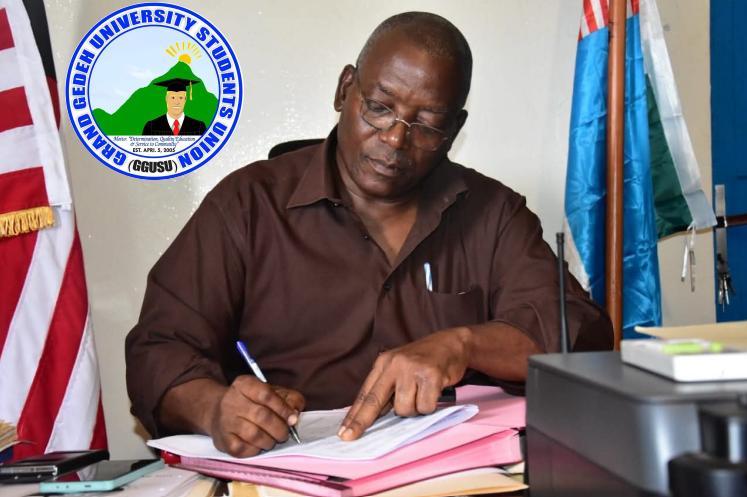Africa-Press – Liberia. Tensions are mounting in Grand Gedeh County following the recent signing of a 30-year land lease agreement with a Burkinabé investor, Boubou Sebu, and subsequent protests by the Grand Gedeh University Students Union (GGUSU). The union has issued a stern condemnation of the land deal, accusing local authorities and Superintendent Alex Chersia Grant of betraying the interests of the indigenous people by leasing 500 acres of ancestral land for cocoa farming to a foreign national.
Official Land Deal and Its Details:
On October 18, 2025, Grand Gedeh County officials finalized the landmark lease agreement with Mr. Sebu, which grants him access to 500 acres of land in the B’hai administrative district for a period of 30 years. The signing ceremony was held at the Superintendent Tubman Palace office and marked an important step toward boosting the county’s agricultural sector.
Superintendent Grant announced that the financial terms of the lease stipulate that, for the first ten years, Mr. Sebu will pay $150,000 USD. This amount is designated to be channeled directly into the County Development Fund. Over the full duration of 30 years, the county is expected to receive a total of $600,000 USD from the agreement.
County Attorney E. Wilkins Nah assured the public that all legal measures are in place to ensure the protection of local forests and land rights within the framework of the agreement. Mr. Sebu expressed his gratitude and confirmed that the leased land would be used exclusively for cocoa production.
GGUSU Condemnation and Concerns
Contrasting sharply with the official narrative, GGUSU issued a strong statement on October 24, condemning Superintendent Grant’s decision. The union described the move as a “shameful and treacherous act,” criticizing the leasing of 500 acres of ancestral land to a foreigner for 30 years. They asserted that this act is a betrayal of the people’s trust, a violation of community land rights, and a reckless abandonment of the heritage of Grand Gedeh.
The union emphasized that land in Grand Gedeh is not for sale or lease and belongs to the indigenous people whose ancestors fought tirelessly to preserve it. The statement condemned the lease as illegal, immoral, and a provocation that threatens the unity, stability, and identity of the community. GGUSU also highlighted that the land deal was executed without the free, prior, and informed consent of the affected communities, raising concerns about future land conflicts and local ownership.
Call for Action and Resistance:
GGUSU leadership declared that they would not remain passive in the face of what they see as an impending land grab. They called for the immediate and unconditional revocation of the lease, full public disclosure of all terms, and intervention by relevant government bodies such as the Ministry of Internal Affairs, the Liberia Land Authority, and the Legislature to halt the process and investigate all parties involved.
The union warned that failure to act would lead to tension, protests, and civic resistance, emphasizing their readiness to mobilize students, youth, and patriotic citizens to defend their land rights.
Official Response and Future Outlook
Despite the union’s protests, the land lease agreement was executed with the understanding that it would promote cocoa farming and generate revenue for the county. Superintendent Grant reiterated that the deal was in the best interest of Grand Gedeh economic development, highlighting the financial contribution to the County Development Fund.
However, the controversy has ignited a broader debate over land rights, sovereignty, and local participation in land transactions. Many residents and civil society groups are calling for greater transparency and community involvement in future land deals to prevent similar conflicts.
As Grand Gedeh County navigates this contentious issue, the clash between economic development initiatives and indigenous land rights remains at the forefront. The union’s strong stance underscores the importance of respecting community participation and legal protections while ensuring that foreign investments do not come at the expense of local heritage and sovereignty. The coming weeks will be critical in determining whether the land lease will be revoked or whether tensions will escalate further.
For More News And Analysis About Liberia Follow Africa-Press






